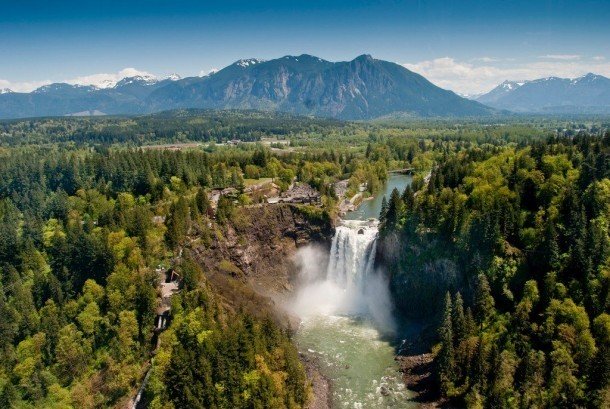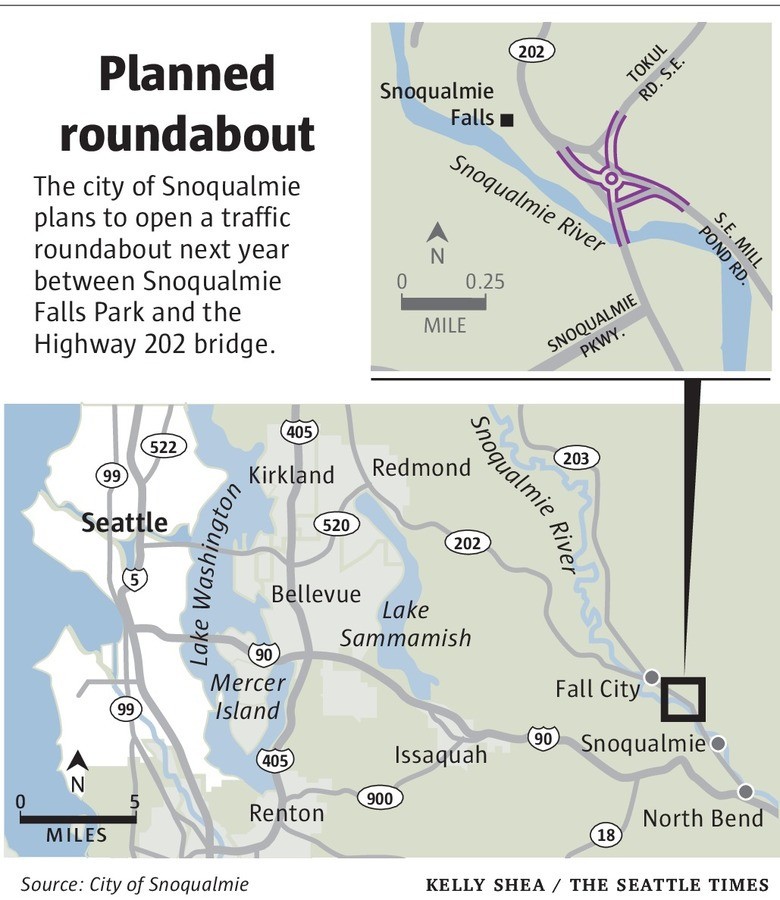Filed under: Analysis, Development, Environment, Indigenous, Southwest

On May 16th, 2016 (shortly after the printing of our last issue), a federal judge temporarily dismissed a racial discrimination lawsuit filed by the Snoqualmie Tribe against the City of Snoqualmie. The tribe alleged that the City had threatened to shut off water and sewage service to the Snoqualmie Casino, thus depriving the tribe of a major source of funds. The threat came after the City threatened to raise water rates 50%. The tribe alleged that the City of Snoqualmie had made this threat based on long standing racial prejudice. It was an open, transparent act the everyday racism that occurs in the Valley of the Moon.
Although the tribe is absolutely correct in their allegations, the federal judge did not side with them and dismissed their lawsuit. In response, the unremarkable white man who is the current mayor of the City of Snoqualmie told the press “this lawsuit was never about discrimination. The City Council, the Administration, and our staff have always been committed to providing cost-effective utility services – fairly and without regard to race. The City wasn’t able to negotiate a long-term sewer contract extension when the other party was refusing to meet or negotiate, so it was only common sense for us to have said that ‘no negotiation means no contract means no future services.’ That was not discrimination, and we are pleased that the court recognized this.”
In colonial double speak, the mayor stated that if the indigenous inhabitants wouldn’t come and treat with City Hall, then City Hall would shut off their services and force them to the negotiating table. In this regard, the City of Snoqualmie is engaged in the standard practice of colonial governance. Through intimidation and fear, they have coerced the Snoqualmie into a position they had no intention of being in. Despite how fervently the mayor may attempt to deny his racism and sliminess, this inept cretin will one day have to face the consequences of his actions.
In a display of total arrogance, the mayor told the media “now that Judge Robart has rejected the Tribe’s discrimination claims, I’m hopeful the Tribe is now ready to get to the details of its casino, hotel, conference center and retail expansion plans, and the kind and amount of sewer service they need. I encourage the Tribe’s leadership to recognize that it makes more sense to do this in person rather than in a court room.”
The dispute between the tribe and the city began over a plan to develop the eastern slope above Snoqualmie Falls (covered in our previous issues). The tribe considers this waterfall to be the center of creation and have already seen it sullied by over a hundred years of colonial activity. Now that it is threatened by an even larger development, the tribe has organized to oppose it under the banner SAVE SNOQUALMIE FALLS. Despite all the rantings and raving of the scumbag mayor, the threat to shut off services to the Snoqualmie Casino was widely perceived to be retaliation against the tribe for opposing the development of the falls.

After this, the Snoqualmie Tribe filed another lawsuit against the city to stop the expansion. In that lawsuit, the tribe states that “Snoqualmie oral tradition supports the existence of burials on the Morgan Parcel. An artifact was discovered on the Tokul Parcel and numerous archaeological sites have been documented on the vicinity of the project.” An arrowhead over 4,000 years old was discovered near the proposed construction site, an archaeological find that was ignored by the city in their desire for development and money.
Very little changed over the summer in the Valley of the Moon, but something happened across the country that began to change conditions for the Snoqualmie Tribe. Hundreds of people began to arrive at the Standing Rock Indian Reservation in North Dakota, a territory inhabited by the Standing Rock Sioux Tribe. They came in order to oppose the construction of the Dakota Access Pipeline, a project that would deliver fracking oil from North Dakota to southern Illinois. Over the next several months, opposition to the project increased and a giant encampment sprang up at the edge of the Standing Rock Sioux tribal lands. Multiple direct actions against the pipeline construction and clashes with the police have given this struggle international attention.
Within this context, the Snoqualmie Tribe decided to meet with the mayor and city officials in September, 2016. It is unknown what exactly was discussed, nor is it known what the new utility rates will be but at the end of these closed meetings a tribal representative released the following statement: “I think very good things came out of that session that will be good for the tribe and the city, It’s our further hope that we can really use this process and this agreement to spring forward on other things that we can work on in a mutually beneficial fashion… I personally feel we are moving forward in the right direction and taking very positive steps.”
The tribe dropped its racial discrimination lawsuit against the City of Snoqualmie after this announcement and sewage services were guaranteed for the next four years at rates acceptable to the tribe. However, despite this temporary appeasement to the city, the Snoqualmie Tribe have not dropped their lawsuit to block construction above Snoqualmie Falls. If the city pushes forward with these plans, a conflict similar to Standing Rock would undoubtedly develop in the Valley of the Moon. Should the tribe ask for help in the future, we ask our readers to lend them support in what will be a long and important battle to save a center of creation from the ravages of capitalism and greed.
Two months after this announcement, on November 21, 2016, twenty tribes from Washington State signed a collective letter expressing their support of Standing Rock. A portion of the statement reads “we support their call to deny the easement of the Dakota Access Pipeline and to reroute the pipeline away from tribal lands, waters and sacred places.” The Snoqualmie Tribe was a signatory to this statement, and we provide a full list to show the combined strength of the indigenous tribes whose lands we inhabit without permission:
The Lummi Nation, Nooksack Tribe; Sauk Suiattle Tribe; Upper Skagit Tribe; Tulalip Tribes; Stillaguamish Tribe; Puyallup Tribe; Nisqually Tribe; Port Gamble S’Klallam Tribe; Suquamish Tribe; Squaxin Island Tribe; Chehalis Tribe; Jamestown S’Klallam Tribe; Lower Elwha Klallam Tribe; Makah Tribe; Hoh Tribe; Quileute Tribe; Quinault Tribe; Snoqualmie Tribe; Cowlitz Tribe; Shoalwater Bay Tribe; Yakama Nation; Confederated Tribes of the Colville Reservation; Spokane Tribe of Indians; Kalispell Tribe; Samish Nation, and the Affiliated Tribes of Northwest Indians.
![]()





